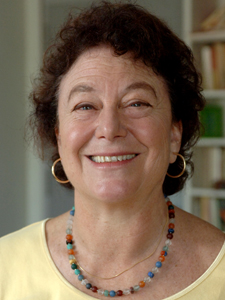Ruth Perry: A Woman’s Voice

Professor Ruth Perry
He lifted up his head when the guns did rattle
And to his army said, How goes the battle?
Quebec is all our own none can prevent it.
Oh then, replies bold Wolfe, I die contented.
Perry’s version offers a backstory—Wolfe’s courtship of a young woman—that frames the narrative and suggests the power of female influence:
I went to see my love, thinking to woo her.
I sat down by her side, not to undo her.
But whenever I speaks one word, my tongue do quiver.
I durst not speak my mind when I am with her.
Clearly, we’re hearing a very different voice from the one that urges his men to “fight on boldly.” The great general, unafraid of Montcalm or of death on the Plains of Abraham, quails before a lover. Perry’s own voice—at once stirring and tender—fully captures the multiple dimensions and emotional costs of Wolfe’s valiant behavior. A scholar’s scholar, Perry writes not only about her subject—most recently the life and contributions of Anna Gordon, Mrs. Brown of Falkland, one of the earliest sources of traditional ballads in Scotland—but also her own scholarly methods. How do scholars do archival research? In a talk given recently at Chawton House, where Jane Austen’s brother once lived, Perry detailed the digging required to find tantalizing details about Mary Astell’s life: “I found an inventory of her father’s house when he died, showing all that it contained— which told me how wealthy the family had been at his death in 1678. There had been 12 trim work chairs in the hall and 8 Russian leather chairs in the parlour in addition to other furniture, which indicates how large those rooms were—along with curtains, pictures, cushions, carpets and other accoutrements of comfort and wealth.” A true literary detective, she has traveled often to Aberdeen to research Anna Gordon, scouring public records and collections, many of them in small, underfunded institutions that cannot afford to digitize their holdings. “It is thrilling,” she says, to have brought to light authors previously neglected. Prof. Perry carries that same adventurous energy into her famous Jane Austen class, where students learn the dances Jane Austen’s characters performed, sample a real English tea, and speculate on what music Emma Woodhouse might be hearing. Perry never loses sight of the larger world beyond the classroom and archive. In 1981 she organized a multidisciplinary conference on “Science, Myth, and Knowledge” at MIT, where scholars viewed an exhibit of 18th-century scientific instruments and tasted a complete 18th-century menu of sherry and potted cheese, celery soup, roast duck, tansy pudding, salmagundi, whipped syllabub, and wine and Madeira. At another dinner provided by the Hsing Hsing restaurant (of which Prof. Perry was a partner at the time), scholars ended a festive Chinese banquet by opening fortune cookies, each containing a quotation from a famous 18th-century author. The one example from Mary Astell read: “If all Men are born free, how is that all Women are born Slaves?” By the kind of coincidence that only scholars and geeks can love, that fortune cookie ended up on Ruth Perry’s plate. Prof. Perry could not appear more different from the characters in Jane Austen’s novels. “I was a single mother when I went to graduate school, and on welfare,” she says. “MIT was my first job.” But clearly she exhibits their independence and spirit: elected President of the American Society for Eighteenth-Century Studies in 2000, with eight books, a dozen fellowships and grants, eighty articles, and who knows how many spirited ballad performances behind her, she looks forward to recovering more voices and raising them in song. Interviewer: Wyn Kelley
